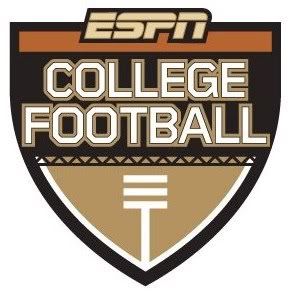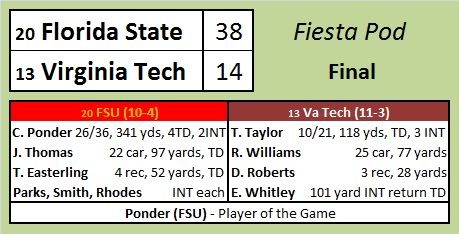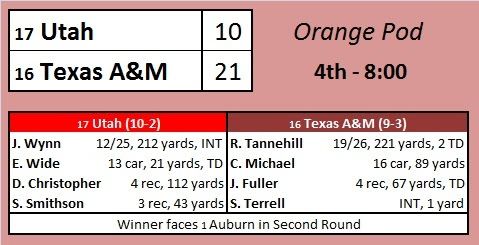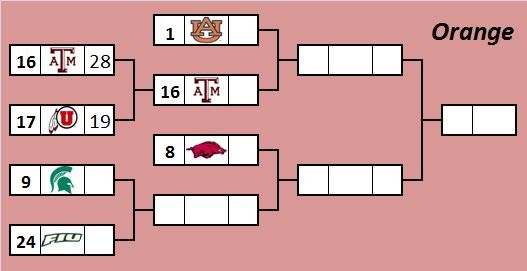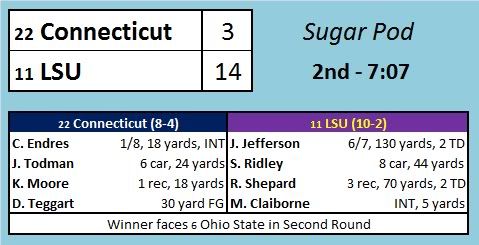So it's technically not a dynasty, but hey, it's something most of us surely want to see in FBS football. I've created a 24-team playoff bracket, that may not be completely realistic in the realm of reality (but hey, at this point neither is any playoff, so let's have fun with it), where CPU vs CPU matchups will determine the 2010 champion. Also, a quick thanks to Shakeandbake30 for the rosters and starfleeter for the CPU v CPU sliders. I hope you guys follow it, make suggestions, create brackets, ask questions, whatever. So without further ado, let the 2010-11 FBS playoffs begin.
ESPN SELECTION SUNDAY
Hosted by Rece Davis, along with Kirk Herbstreit, Craig James
Davis: Welcome college football fans to the moment many of you have been waiting for over the last few years, the beginning of the 2010-2011 FBS playoffs. Rece Davis here along with Kirk Herbstreit and Craig James, where over the next hour, we will be unveiling the 24-team bracket for the tournament, analyzing the matchups, and taking a look at the teams that just missed the cut. Youíve all waited long enough, so letís get right to the bracket, but first, the tournament outline.
Now, this doesnít work exactly the same as the basketball tournament. There is no selection committee, but instead, a set of guidelines in which determine the 24 teams in the field, mainly based on BCS ranking, which we will go over right now.
First, similar to the basketball tournament, the champion of each conference gets an automatic bid. In the case of co-champions, BCS rankings then head to head matchups determine what team gets the bid.
Herbstreit: 9 of the remaining 13 bids are divided between the top 6 conferences in college football. Gone are the days of AQ-teams, and the ďbig sixĒ. Similar to the BCS rankings for each team, the conferences also get rated from 1 to 11 based on AP strength and computer ratings. Using these rankings, the top 6 conferences get an extra at large bid, with the top 3 getting an additional bid on top of that. These at large bids are given out based solely on BCS ranking.
James: Four bids then remain. One of these bids automatically goes to any independent team in the top 24 of the BCS rankings. If there is no independent in the top 24, all four remaining spots in the tournament go to at large teams based on BCS rankings, with a couple exceptions. These last at large bids must go to teams from four different conferences. This is to make sure no conference has too many teams in the field. Similarly, any team finishing fourth or worse in a division within their conference is ineligible.
Davis: And now, enough talk, letís unveil the bracket.
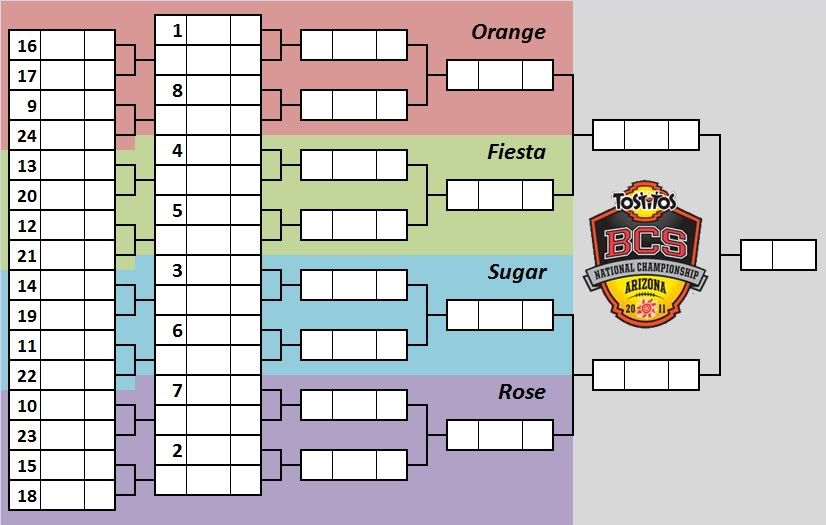
Davis: The bracket is divided into 4 pods of 6 teams each, with the top 4 seeds heading each pod, and the top 8 seeds overall getting a first round bye. All opening round games will be played at the home of the higher seeded team, with the following rounds in each pod played in either Miami, New Orleans, Glendale, or Pasadena. Without further ado, letís get to the teams, starting with the Orange bracket.
The orange bracket is headed by the number 1 seed, the SEC champion
(1) Auburn Tigers who will face the winner of the game between
(16) Texas A&M out of the Big 12 and
(17) Utah from the Mountain West. The
(9) Michigan State Spartans will host the champions of the Sun Belt conference
(24) Florida International, who receive the bid over co-champion Troy due to their win over the Trojans on November 13. The winner of that game will face another team from the SEC, the
(8) Arkansas Razorbacks. Herbie, Craig, what sticks out to you about this pod?
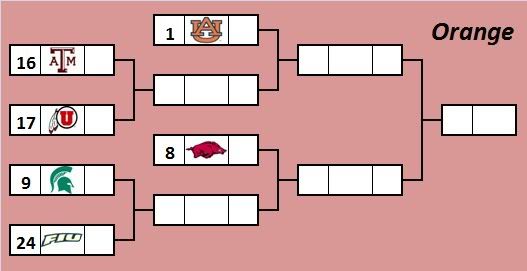
Herbstreit: I look at the teams in this pod, and I really donít see a way Auburn doesnít come out of this bracket. Nothing against the other teams, but Michigan State, A&M, nor Utah have convinced me they are elite teams.
James: I look ahead to a potential SEC rematch with Auburn and Arkansas, in which they combined to score 108 points! If that game materializes, I see another shootout deciding the spot in the final four.
Davis: The winner of the Orange pod will face the winner of the Fiesta pod, with games being played at University of Phoenix Stadium in Glendale, Arizona. The top seed going to Glendale are the Cardinal from
(4) Stanford and the Pac-10. Theyíll face the winner of a rematch from the Atlantic Coast Conference championship just yesterday, the
(13) Virginia Tech Hokies and
(20) Florida State Seminoles will go at each other again in Blacksburg. The champions of Conference-USA,
(21) Central Florida will face an at large team out of the Big 12,
(12) Missouri. The winner of that game will face a co-champion of the Big Ten, and highest ranked team out of that conference, the Badgers of
(5) Wisconsin. Craig, I know you have an upset pick here.
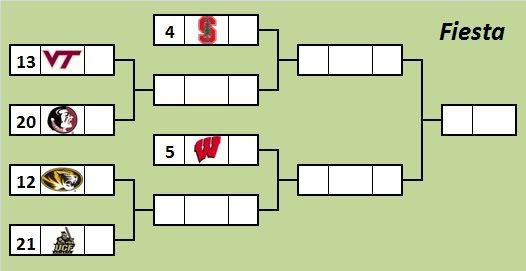
James: Yes, I do. I know the Hokies have finished the season with 11 straight wins, and just beat the Seminoles just last night, but Iím telling you, the Seminoles now know what to do against Virginia Tech, and will be out for revenge. That being said, Stanford is just playing too well to not come out of this pod.
Herbstreit: I think this is definitely the toughest pod of the four, Stanford and Wisconsin are playing out of their minds right now, and donít sleep on those Hokies, theyíve won 11 straight and there really arenít any signs of slowing down.
Davis: I donít know guys, I kind of like UCF over Missouri in an upset in the Show-Me state. Next, to the Sugar bracket with games played in the Superdome. The third seed
(3) TCU will face the winner of a matchup between the Big 12 and the Big East,
(14) Oklahoma State hosts
(19) West Virginia.
Herbstreit: Oklahoma State is the big sleeper in this tournament, mark my words.
Davis: Also from the Big East, the champion
(22) Connecticut Huskies will travel to the Bayou to face
(11) LSU. The victor earns a date at the Superdome against
(6) Ohio State.
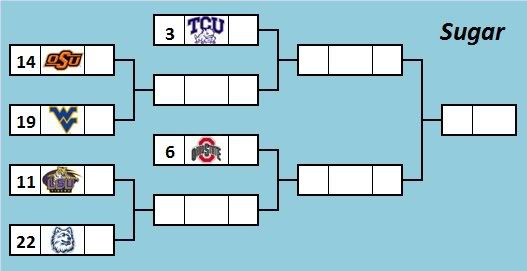
James: I love TCUís offense, but looking forward to a game against Ohio State, that will be tough. TCU really hasnít faced an offense with the likes of the Buckeyes with Terrelle Pryor yet. What a tough draw for the Big East too, guys.
Davis: Last, we head to the Rose pod, headed by the Pac-10 champion, and undefeated
(2) Oregon Ducks. They await the victor of
(18) South Carolina and WAC co-champions
(15) Nevada. The Big 12 champion Sooners of
(7) Oklahoma await the winner of MAC champions
(23) Miami of Ohio and the
(10) Boise State Broncos on the blue turf up in Idaho. Herbie, your thoughts?
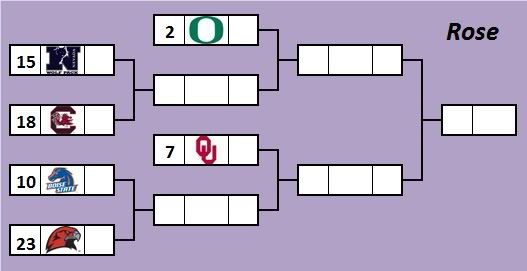
Herbstreit: Well, the first thing my eyes get drawn to is a potential rematch of that Fiesta Bowl from a couple years back, with Oklahoma versus Boise State. Donít forget, Boise State is a 26 yard field goal away from being undefeated and real challengers for the title. I like Boise charging on to the finals of this pod, potentially with another rematch from recent memory, Oregon or Nevada.
Davis: And thankfully for Byron Hout, LeGarrette Blount will not be on the field after that game. Craig?
James: Donít fall asleep on Oklahoma, guys. Bob Stoops knows how to get his guys ready for a big game. But, does anybody have the defense to slow down Oregonís offense enough? Iím not sure about that.
Davis: Now, letís take a look at the complete, 24 team tournament bracket, along with the final BCS standings to notice a couple high profiles teams that did not make the field.

Herbstreit: I would have really liked to see what Alabama could have done in the tournament, they are the first ever team affected by the 3 teams per division rule, in that very strong SEC West.
Davis: Nebraska also barely missed the field, the fifth highest team in the Big 12, gets eked out of a spot by two hundredths of a point by the Aggies. The last thing weíll do is go through the breakdown of teams by conference.
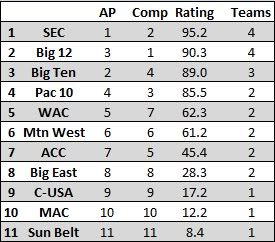
The big winners were the SEC and Big 12, each getting 4 teams into the dance, the Big Ten was the other team ranked in the top 3, getting the 2 automatic at large bids. Thatís it for the show today, weíll see you next Saturday, when 8 games will be on the schedule, in the first round of the 2010-2011 FBS playoffs.
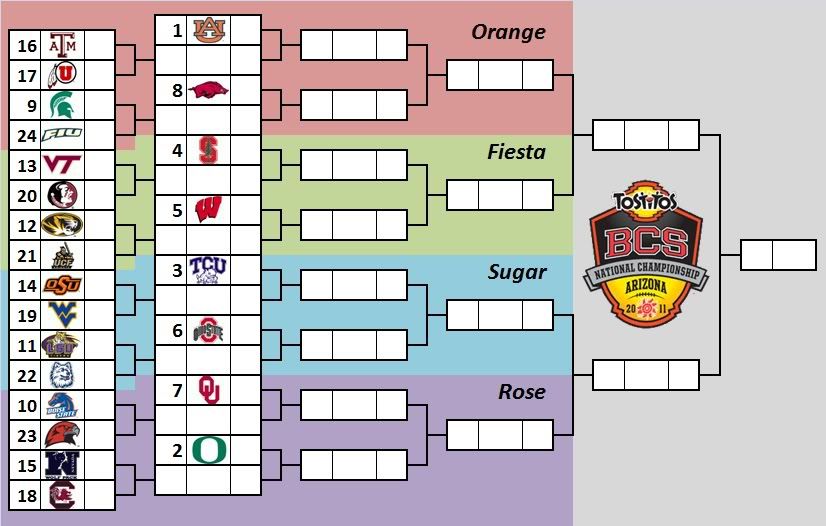


















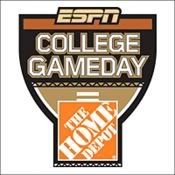








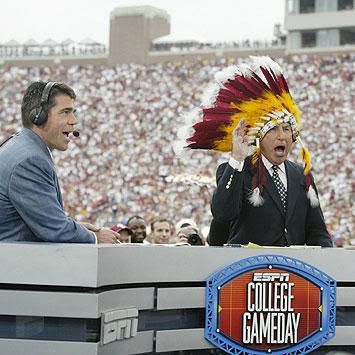
 Just awesome, can't wait to see how this unfolds.
Just awesome, can't wait to see how this unfolds.